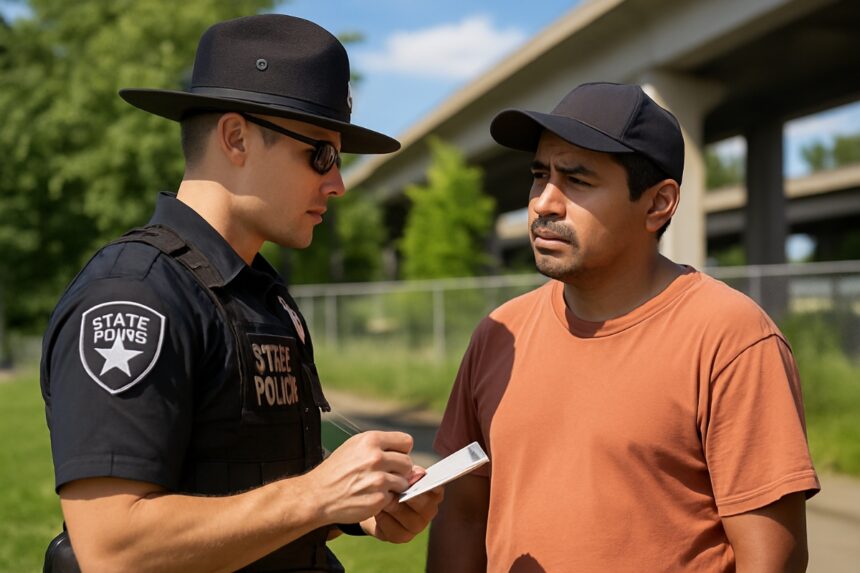Texas is once again at the center of the immigration debate. Following the implementation of the controversial SB4 act, the state has approved new reforms that toughen the penalties for those who “help” people without legal status in the United States.
These modifications have generated concern among Hispanic communities, activists and civil rights advocates, who warn that the ambiguity of the legal language could put at risk even citizens or legal residents who provide basic support to their neighbors, friends or family members.
What does the new law say?

Passed by the state Congress in April 2025 and signed by Texas Governor Greg Abbott weeks later, the law now includes stiffer penalties for those who:
Transporting undocumented persons
They host immigrants without legal status
Provide financial or material assistance
Refuse to cooperate with state agents in immigration investigations
Most troubling to many is that proof of criminal intent is not required.
That is, a person could be penalized even if he or she was unaware of the other person’s immigration status.
Texas punishes immigrant aid
Punishments include:
Fines ranging from $1,500 to $25,000.
Possibility of facing minor criminal charges (and in repeated cases, felonies).
Risk of losing business licenses or operating permits.
In addition, any public official who impedes cooperation with immigration authorities could be sanctioned or dismissed.
Who could be affected?
The law is of concern to:
Drivers who offer “raite” to neighbors or co-workers.
Homeowners who rent rooms without asking for immigration status.
Churches and religious organizations that provide shelter or food.
Citizens living with undocumented family members.
There have even been reports of people being detained after sharing a car with someone without papers.
What do advocates say?
Organizations such as ACLU Texas and RAICES have warned that these measures could foster distrust, racial discrimination and profiling.
They also argue that many people may avoid reporting crimes or cooperating with the police for fear of being criminalized just for helping someone.
What should you do?
If you live in Texas, be well informed about the law and its implications.
If you help someone, do it with caution and know your rights.
If you are arrested, do not declare anything without legal advice.
In times of tougher laws, information is protection.
Most worrying to many is that no proof of criminal intent is required
QueOnnda.com














